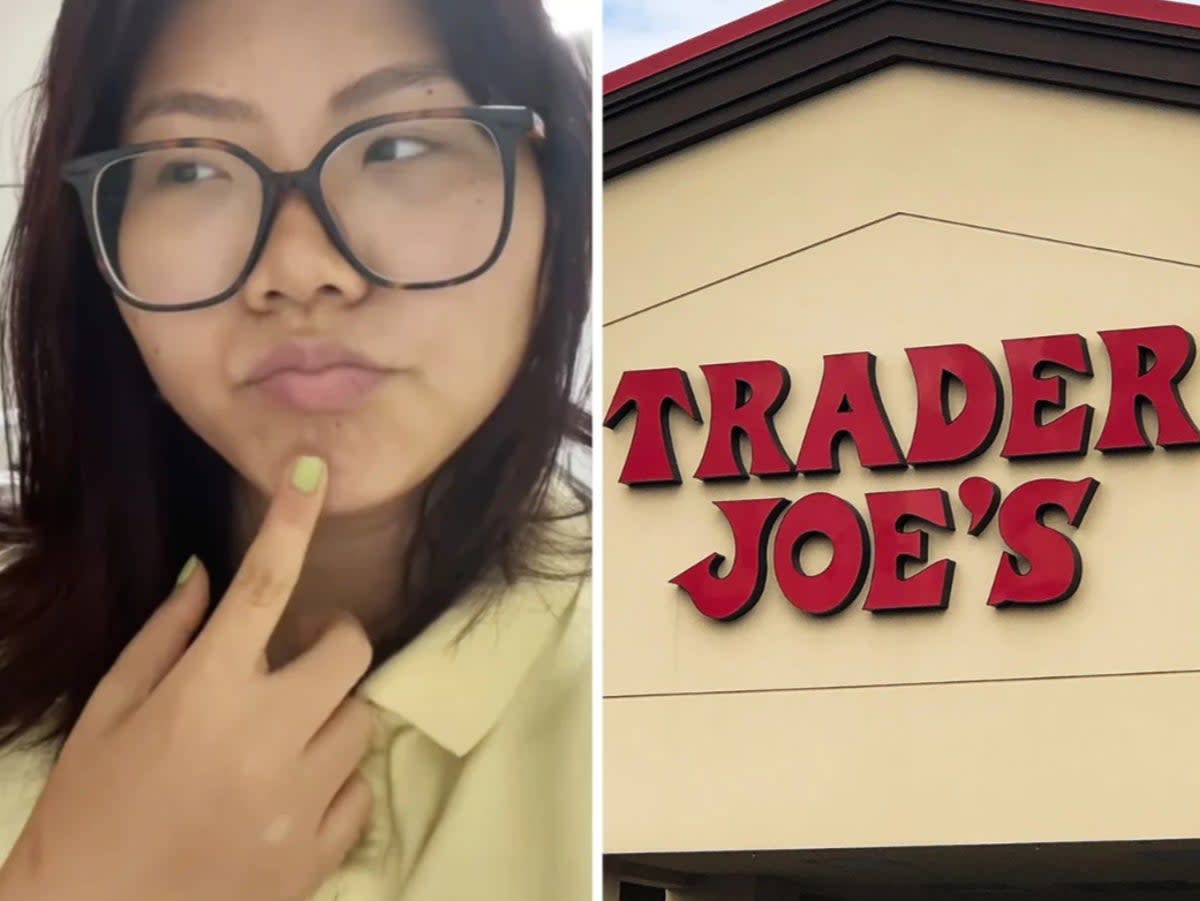Trader Joe's & DEI: Unpacking The Recent Shifts
In recent times, a significant conversation has emerged across corporate America regarding Diversity, Equity, and Inclusion (DEI) initiatives. As companies navigate evolving social landscapes and economic pressures, questions naturally arise about their commitment to these principles. One particular query that has captured public attention is: did Trader Joe's get rid of DEI? This article delves into the nuances of this question, examining the broader corporate trends, specific instances related to Trader Joe's, and what these shifts might mean for employees and consumers alike.
The landscape of corporate DEI is complex, often influenced by public sentiment, political shifts, and internal business strategies. While some reports suggest a widespread scaling back of DEI efforts, it's crucial to distinguish between genuine policy changes, shifts in public communication, and mere speculation. Understanding Trader Joe's position requires looking beyond simple headlines and considering the context of their past actions and the current corporate climate.
Table of Contents
The Question: Did Trader Joe's Get Rid of DEI?
The direct question, "did Trader Joe's get rid of DEI?" is one that has circulated widely, often fueled by anecdotal evidence or broader industry trends. While Trader Joe's has not made a sweeping public announcement stating they are entirely abandoning Diversity, Equity, and Inclusion initiatives, there are indicators and perceptions that suggest a shift in their approach or public communication regarding these efforts. The sentiment that "Aldi recently quietly canceled their DEI policies, so that is also the end of my shopping there or at Trader Joe’s" highlights a consumer perception that these two related retailers might be moving in a similar direction concerning their DEI commitments. This perception, whether fully accurate or not, is powerful and can significantly impact customer loyalty and brand image. It suggests that for some consumers, the perceived loss of financial support and public boycotting is a direct consequence of such actions.
It's important to differentiate between a complete dismantling of DEI programs and a strategic re-evaluation or re-framing of how these principles are implemented and communicated. Companies may choose to integrate DEI more subtly into their core business practices rather than highlighting them as standalone initiatives, which can lead to the perception that they are being "scaled back" or "set aside."
The Broader Corporate DEI Landscape
To understand the context surrounding Trader Joe's, it's essential to look at the wider corporate environment. Following widespread protests that accompanied social justice movements, much of corporate America endorsed and expanded Diversity, Equity, and Inclusion initiatives. However, recent data suggests a significant shift. Mentions of DEI and "diversity, equity, and inclusion" in earnings calls have dropped roughly 82% since Q2 of 2021. This sharp decline indicates that companies have been talking about DEI less, and when they do, they are often reframing the narrative. This trend is not isolated to a few companies; "a number of prominent companies have scaled back or set aside the diversity, equity and inclusion initiatives that much of corporate America endorsed."
A Shift in Corporate Narrative
This reduction in public discourse doesn't necessarily mean an end to all DEI efforts, but rather a change in how they are communicated and prioritized externally. Some companies might be moving away from public-facing DEI campaigns to a more internal, integrated approach. The focus might shift from "aspirational representation goals" to ensuring equitable access and opportunities as required by local law, as seen in some banking sectors where "job candidates and interview panels don't need to be" diverse in certain ways, except where legally mandated. This subtle but significant change reflects a broader re-evaluation of how DEI is perceived and implemented within corporate structures, perhaps moving from a reactive stance to a more embedded, compliance-driven one.
Political Influences on DEI Initiatives
The political climate also plays a significant role in the corporate approach to DEI. Towards the end of his first term in 2020, former President Trump signed an executive order barring federal DEI programs. While President Joe Biden swiftly revoked this order shortly after taking office, the political back-and-forth illustrates the contentious nature of these initiatives. DEI programs, according to ABC News interviews with DEI experts, are fundamentally intended to address and correct discriminatory practices and ensure equitable access and opportunities for those who were long denied them. The political discourse surrounding these programs can influence corporate decisions, either encouraging their adoption or prompting a more cautious approach.
Despite political pressures, there are still many places advocating for marginalized communities to be part of their workforce. The tension between political mandates and corporate values creates a dynamic environment where companies must carefully navigate their public and internal stances on DEI.
Trader Joe's Specific Context and Controversies
When examining Trader Joe's, it's clear that their approach to inclusivity has faced scrutiny and controversy over the years. This history provides crucial context for understanding any perceived changes in their DEI stance.
Pride Displays and Backlash
Trader Joe's has had specific instances where their policies around inclusivity provoked backlashes. For example, "Its 2016 policy around gender inclusivity and its 2023 Pride collection provoked backlashes, as did its subsequent decision to pull some Pride displays from stores." This indicates a pattern where the company's attempts at inclusivity were met with public criticism, leading to a retraction or alteration of their displays. Such experiences can certainly influence a company's future public-facing DEI strategies, potentially making them more cautious or leading them to de-emphasize overt displays of support in favor of less visible, internal initiatives.
The decision to pull Pride displays, whether in response to backlash or for other reasons, sends a message to consumers and employees about the company's commitment to certain communities. This kind of action contributes to the public perception of whether a company is truly committed to diversity and inclusion or if it's merely responding to market pressures.
Union Relations and Equity Concerns
Beyond external displays, a company's internal practices regarding employee rights and fair treatment are also central to the "equity" component of DEI. Trader Joe's has a contentious history with unions. Reports state, "They are thee worst when it comes to unions," and describe them as "V much a union busting company." A notable example cited is, "They closed a store in NYC because they started a union just to." This aggressive stance against unionization, if true, raises significant questions about the "equity" aspect of their operations. Equity in DEI is about fair treatment, access, and opportunity for all employees, and a strong anti-union stance can be seen as directly conflicting with these principles by limiting workers' collective bargaining power and voice.
The closure of a store specifically due to unionization efforts would be a severe blow to employee equity and could lead to a perception that the company prioritizes control over fair employee representation. Such actions, even if not directly labeled as DEI issues, certainly fall under the umbrella of creating an equitable and inclusive workplace environment.
Public Perception and Consumer Response
The perception that Trader Joe's, or any company, is scaling back on DEI can have tangible consequences. As noted, "The loss of $ and public boycotting is the" immediate impact. Consumers, especially those who prioritize social responsibility, are increasingly making purchasing decisions based on a company's values. If a significant portion of their customer base believes that Trader Joe's has abandoned or significantly reduced its commitment to DEI, it could lead to reduced sales and a damaged reputation. This is particularly true for a brand like Trader Joe's, which has cultivated an image of being progressive and community-oriented.
The quiet nature of some of these alleged policy changes, such as "Aldi recently quietly canceled their DEI policies," suggests that companies might be attempting to avoid public outcry. However, in the age of social media and rapid information dissemination, such moves rarely go unnoticed by vigilant consumers and advocacy groups.
The Purpose and Impact of DEI Initiatives
It's crucial to remember what DEI initiatives are designed to achieve. As stated, they are "intended to address and correct discriminatory" practices. This includes ensuring equitable access and opportunities for those who were long denied them. Beyond moral imperatives, studies have shown that diverse and inclusive workplaces lead to better business outcomes, including increased innovation, higher employee satisfaction, and improved financial performance. Companies that genuinely invest in DEI are often seeking to:
- Foster a more welcoming and inclusive environment for all employees and customers.
- Attract and retain a wider pool of talent, especially from underrepresented groups.
- Improve decision-making by incorporating diverse perspectives.
- Enhance brand reputation and consumer trust.
When a company is perceived to be stepping back from these initiatives, it raises concerns about their commitment to these broader benefits and their responsibility to their diverse workforce and customer base. The long-term impact of such perceived changes could extend beyond immediate boycotts to affect talent acquisition and overall market competitiveness.
DEI in Smaller Businesses and Future Outlook
While much of the public discussion focuses on large corporations, the trend of re-evaluating DEI also extends to smaller businesses. According to a Resume.org study of companies, "smaller businesses are also planning out their strategy for the year." This indicates that the conversation around DEI is pervasive across all business sizes, with each entity determining how best to integrate or adjust their approach based on their unique context and resources.
Despite the overall trend of reduced public mentions, there is still an active market for DEI expertise. Companies are still "seeking a visionary Director of Diversity, Equity, and Inclusion (DEI) to lead our efforts in creating an" inclusive environment. This suggests that while the public narrative might be shifting, the underlying need for and value of DEI work within organizations remains. It's possible that DEI is evolving from a highly publicized, external-facing initiative to a more embedded, internal function, focusing on systemic change rather than performative gestures.
Navigating the Future of Corporate DEI
The question of whether Trader Joe's has truly "gotten rid of DEI" is less about an outright abolition and more about a potential recalibration of priorities and public messaging. The broader corporate trend indicates a move towards less overt public declarations of DEI efforts, possibly due to backlash, political pressure, or a strategic decision to integrate these principles more subtly into core business operations. For Trader Joe's, their past controversies regarding Pride displays and their firm stance against unions contribute to a complex picture that shapes public perception of their commitment to equity and inclusion.
Ultimately, the impact of these shifts will be measured not just by company statements, but by their actions: how they treat their employees, how diverse and inclusive their hiring and promotion practices are, and how they respond to the evolving needs of their diverse customer base. Consumers and employees will continue to hold companies accountable, and the perceived presence or absence of robust DEI initiatives will remain a critical factor in brand loyalty and reputation.
What are your thoughts on the evolving landscape of DEI in corporate America? Have you noticed changes in how companies, including Trader Joe's, approach these initiatives? Share your perspectives in the comments below!

Shopper calls out Trader Joe’s for controversial cultural food labels

I Tried Trader Joe’s New Spring Lineup—Here’s What to Buy | Bon Appétit

Trader Joe's is slowly getting rid of its seniors-only shopping hours